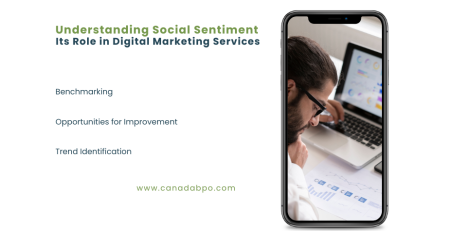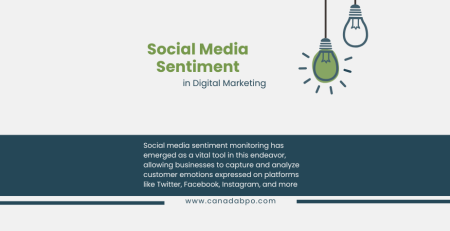Marketing plays a critical role in the success of any business. Whether you’re a real estate agent, broker, or property developer, reaching potential buyers and sellers requires more than traditional tactics. In today’s digital age, real estate companies must adopt innovative, multi-channel marketing strategies to stand out, build credibility, and drive sales.
In this blog post, we’ll explore marketing strategies for real estate companies that can boost brand visibility, generate quality leads, and grow your business.
1. Build a User-Friendly Real Estate Website
Your website is often the first point of contact for potential clients, so it needs to leave a lasting impression. A real estate website should be professionally designed, mobile-responsive, and easy to navigate. Essential features include:
- Property Listings: Display high-quality images, detailed descriptions, and virtual tours of properties.
- Search Functionality: Implement filters that allow users to search properties based on location, price range, and property type.
- MLS Integration: Sync your website with multiple listing services (MLS) to ensure real-time updates on property availability.
- Lead Capture Forms: Use call-to-action buttons and lead forms to capture client information for future follow-ups.
2. Leverage Search Engine Optimization (SEO)
Search engine optimization (SEO) is crucial for driving organic traffic to your website. By optimizing your website for search engines like Google, you can increase your chances of appearing at the top of search results when potential buyers search for properties or real estate services.
Here are a few SEO strategies specific to real estate:
- Target Local Keywords: Optimize your site for local searches, such as “real estate agents in [city]” or “homes for sale in [neighborhood].”
- Create Localized Content: Develop blog posts or landing pages focusing on local real estate market trends, neighborhood guides, and buying/selling tips.
- Optimize Property Listings: Ensure each property page has detailed descriptions, optimized images, and keywords related to the location and property type.
3. Utilize Social Media Marketing
Social media is one of the most powerful marketing tools for real estate companies. Platforms like Facebook, Instagram, LinkedIn, and Twitter allow you to connect directly with potential clients and showcase your listings in a visually appealing way.
Here are a few ways to maximize your social media presence:
- Share Property Listings: Post high-quality photos and videos of properties, along with key details to capture the attention of followers.
- Run Targeted Ads: Use social media advertising to reach specific demographics such as first-time homebuyers, investors, or luxury property seekers.
- Host Virtual Open Houses: Leverage live streaming features on platforms like Facebook Live or Instagram Stories to host virtual property tours.
- Engage with Followers: Respond to comments, answer questions, and engage with your audience to build trust and foster long-term relationships.
4. Embrace Video Marketing
Video is an incredibly effective medium for real estate marketing. With potential buyers wanting to get a closer look at properties before committing to in-person viewings, real estate companies can use video content to engage clients and provide immersive experiences.
Some video marketing strategies include:
- Property Walkthroughs: Create professional videos showcasing properties, highlighting features, and giving potential buyers a sense of what it would be like to live there.
- Client Testimonials: Share videos of satisfied clients sharing their experiences, which can build trust and credibility.
- Market Updates: Post regular video updates about the real estate market, neighborhood insights, or industry trends to position yourself as an expert in the field.
5. Invest in Pay-Per-Click (PPC) Advertising
PPC advertising allows you to place ads at the top of search engine results pages or social media platforms, driving traffic to your website immediately. These ads are highly targeted, meaning you can focus on potential buyers or sellers who are actively searching for real estate services.
When running PPC campaigns for your real estate company:
- Use Location-Based Targeting: Target users searching in specific locations relevant to your properties or services.
- Write Compelling Ad Copy: Include your value proposition, such as “Luxury Homes in [City]” or “Top Real Estate Agent in [Neighborhood].”
- Optimize Landing Pages: Ensure the landing page users are directed to is optimized with relevant property listings or service information.
6. Create a Strong Email Marketing Campaign
Email marketing is a powerful tool for nurturing leads and staying top-of-mind with potential clients. Whether you’re promoting a new property, offering market insights, or simply keeping clients updated, email marketing allows you to build ongoing relationships.
Some key email marketing strategies include:
- Segment Your Audience: Group your email list by buyer/seller, location, budget, or property preferences to send more personalized content.
- Use Drip Campaigns: Automate a series of emails that guide potential clients through the home buying or selling process.
- Offer Valuable Content: Share relevant information like market reports, property updates, and tips for buying/selling.
7. Take Advantage of Content Marketing
Content marketing helps establish your real estate company as a trusted authority in the market. By creating valuable and informative content, you can attract potential clients and build brand awareness. Blog posts, videos, and infographics are great content types to engage your audience.
Some content ideas for real estate companies include:
- Market Reports: Share insights and analysis of local real estate market trends.
- Neighborhood Guides: Write about the best neighborhoods in your area, including schools, amenities, and property values.
- Home Buying/Selling Tips: Provide expert advice on navigating the home buying or selling process.
8. Leverage Customer Reviews and Testimonials
Customer reviews play a significant role in the decision-making process for potential buyers and sellers. Positive testimonials help build trust and demonstrate your credibility in the real estate market. Encourage satisfied clients to leave reviews on Google, Yelp, Zillow, or other review platforms.
9. Use Real Estate CRM Tools
A real estate-specific CRM (Customer Relationship Management) tool helps you manage leads, automate follow-ups, and track client interactions. By using a CRM, real estate agents can stay organized and ensure they never miss an opportunity to close a deal.
Marketing for real estate companies requires a multi-channel approach that combines both digital and traditional tactics. From building a strong online presence through your website and social media, to leveraging SEO, PPC, and email marketing, there are countless ways to attract potential buyers and sellers.
By focusing on these key marketing strategies, your real estate company can increase visibility, generate quality leads, and position itself as a trusted leader in the industry. Whether you’re targeting first-time homebuyers, investors, or luxury property seekers, having a comprehensive marketing plan will set your business up for long-term success.










